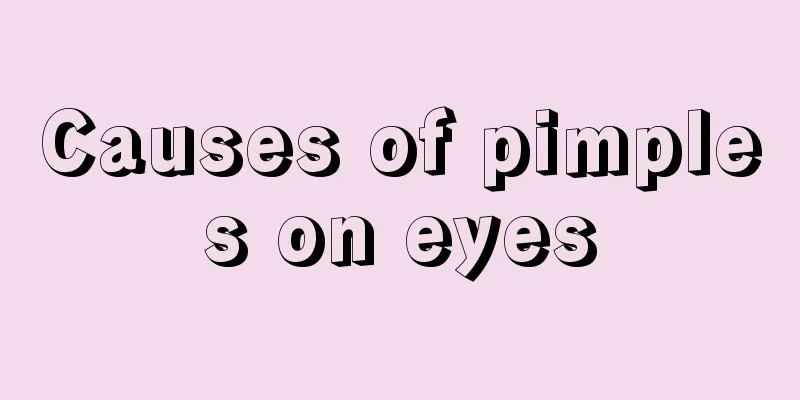Can I wear sunglasses whenever I want?

|
Are there any particular requirements for wearing sunglasses? Are sunglasses suitable for everyone? The weather is hot in the summer and the sun is harsh. When you go out on the street or travel, wearing a pair of sunglasses will not only instantly turn you into a fashionable "black sunglasses", but will also make your eyes more comfortable. But are there any particular requirements for wearing sunglasses? Are sunglasses suitable for everyone? You can’t wear sunglasses whenever you want, there are also “contraindications” Experts say that ultraviolet radiation increases in the summer, which can easily cause damage to the cornea, conjunctiva, lens, etc. Long-term exposure to direct sunlight can also lead to a rapid decline in vision, causing myopia, hyperopia, astigmatism or cataracts. Therefore, it is very necessary to protect your eyes in summer and avoid exposing them to the sun for a long time. However, there are four types of eye disease patients who cannot wear sunglasses at all, namely glaucoma, retinitis optica, color blindness, and night blindness. Glaucoma patients: Due to the disorder of aqueous humor circulation, the intraocular pressure increases, causing the optic disc to atrophy and visual field defects, thus leading to decreased vision. If you wear sunglasses, the reduced light and dilated pupils will aggravate the aqueous humor circulation disorder in the eye, further increasing the already high intraocular pressure, which will not only worsen the condition and increase the patient's pain, but may even cause blindness. Patients with optic retinitis: Wearing sunglasses will aggravate the conduction disorder of the optic nerve and is not conducive to recovery. Color blind people: It is no problem for people with total color blindness to wear sunglasses. However, since total color blindness is extremely rare, the vast majority of people are partial color blind and only lack the ability to distinguish a few colors. Wearing sunglasses makes color discrimination more difficult for such patients. Night blindness patients: Elderly people suffering from night blindness have long-term insufficient intake of vitamin A, and the retinal involved in dark vision reactions in the body cannot be effectively supplemented. Therefore, the patient's vision will be affected in dim light, so they are not suitable to wear sunglasses. Experts specifically pointed out that children should not wear sunglasses before the age of 6, because children's visual function has not yet matured and needs more bright light and clear object stimulation. Wearing them for a long time will affect the normal development of vision and may cause amblyopia in severe cases. Choosing sunglasses requires professional optometric knowledge Improper wearing will hurt your eyes At present, citizens are very casual when choosing sunglasses. They just go to shopping malls, supermarkets or even roadside stalls to buy them. In this regard, experts remind that, just like wearing myopic glasses, choosing sunglasses also requires professional optometry knowledge. Improper wearing will not only fail to block ultraviolet rays, but will hurt the eyes. Only sunglasses with polarized function can effectively block more ultraviolet rays. The reflected glare caused by sunlight shining on sand, water, snow, and road surfaces often causes eye discomfort and fatigue. The polarization angle and curvature of polarized sun lenses are designed based on precise optical principles, which effectively eliminate and filter out scattered light in the light beam, so that the light can be projected into the eye's visual image along the correct transmission axis, making the field of vision clear and natural. Just like the principle of Venetian blinds, the light is adjusted to enter the eye in the same direction, making the scenery look soft and not dazzling. However, many sunglasses are made of plexiglass or ordinary glass and do not have UV protection. If you choose such inferior sunglasses, it is more likely to damage your eyes because the pupils will dilate after wearing sunglasses, making it easier for ultraviolet rays to penetrate, which is more likely to damage the eyes than without wearing sunglasses. "Whether the sunglasses you spent thousands or even tens of thousands of yuan to buy can really protect against ultraviolet rays, it is difficult for an eyewear store without professional optometry knowledge to give a correct answer. Therefore, it is best for citizens to go to a professional optometry institution to choose the sunglasses that best suits them under the guidance of professionals." said the expert. Finally, a reminder that normal people should pay attention to the following points when wearing sunglasses: 1. The wearing time should not be too long to avoid adjustment burden and visual fatigue; Second, it is not recommended to wear it indoors or in places with low light at night; 3. Wearing sunglasses will reduce your vision, contrast sensitivity and three-dimensional vision, so you should be careful to prevent falls and collisions. Do darker sun lenses offer better UV protection? Many people believe that the depth of lens color is proportional to UV protection, but in fact there is no relationship between the two. Because the color depth of the lens refers to the transmittance of visible light, which can be judged with the naked eye, but ultraviolet rays cannot be observed with the naked eye, the UV protection performance of the lens can only be detected by specific focal meters and spectrometers. For example, PC lenses coated with anti-reflection film have a transmittance of up to 99% and an UV protection performance of almost 100%. If the lenses cannot block ultraviolet rays, the darker the color of the lenses, the greater the damage to the eyes. Because when you wear dark-colored sunglasses in the sun, the pupils will dilate due to the reflection of light, and the lenses themselves cannot prevent the entry of ultraviolet rays. In this way, the ultraviolet rays per unit area are not reduced, while the pupil area that receives light increases, so the ultraviolet rays entering the eyes increase. That is to say, wearing dark-colored sunglasses that cannot block ultraviolet rays will cause greater damage to the eyes than wearing no sunglasses at all. |
<<: Treatment of allergic asthma
>>: Doing one thing while urinating is most beneficial to the kidneys
Recommend
What is the range of urine pH value
What is the range of urine pH value? This is what...
How many of the top ten short-lived habits do you have?
How many of the top ten short-lived habits do you...
Patients with bile duct cancer should undergo examination items
Nowadays, medicine is making progress day by day,...
Can I take anthelmintics if I don't have roundworms?
Many parents worry that their babies have roundwo...
Introduction to several common symptoms of lymphoma
Among various malignant tumors, the incidence of ...
What should you eat to restore your strength after a serious illness?
Physical strength is a kind of kinetic energy emi...
What is nasal bone osteoma
Nasal osteoma is a benign bone tumor. The treatme...
Hair dryer repair
I believe that many women who love beauty should ...
Moxibustion on this magical point can help oral ulcers heal quickly!
Many people have suffered from oral ulcers. Those...
What is the reason for red bumps on the neck due to thyroid cancer
Red bumps on the neck due to thyroid cancer may b...
Indications of chloral hydrate solution
Chloral hydrate solution is a common drug for tre...
Is back pain an early symptom of lung cancer?
Is back pain an early symptom of lung cancer? The...
What are the causes of prostate cancer?
There are many reasons for prostate cancer in men...
Beware of uneven teeth that may cause tongue cancer. How can we prevent tongue cancer?
Tongue cancer usually occurs at the edge of the t...
What should adults pay attention to when they have chickenpox?
I believe everyone has a misunderstanding that ch...









